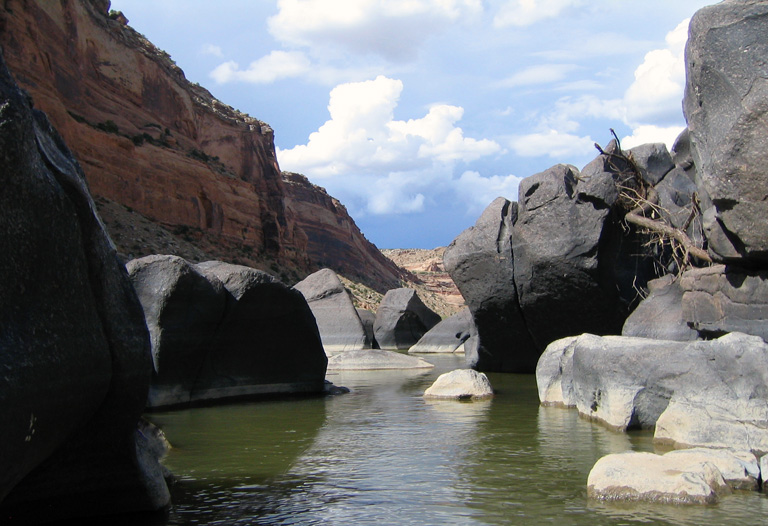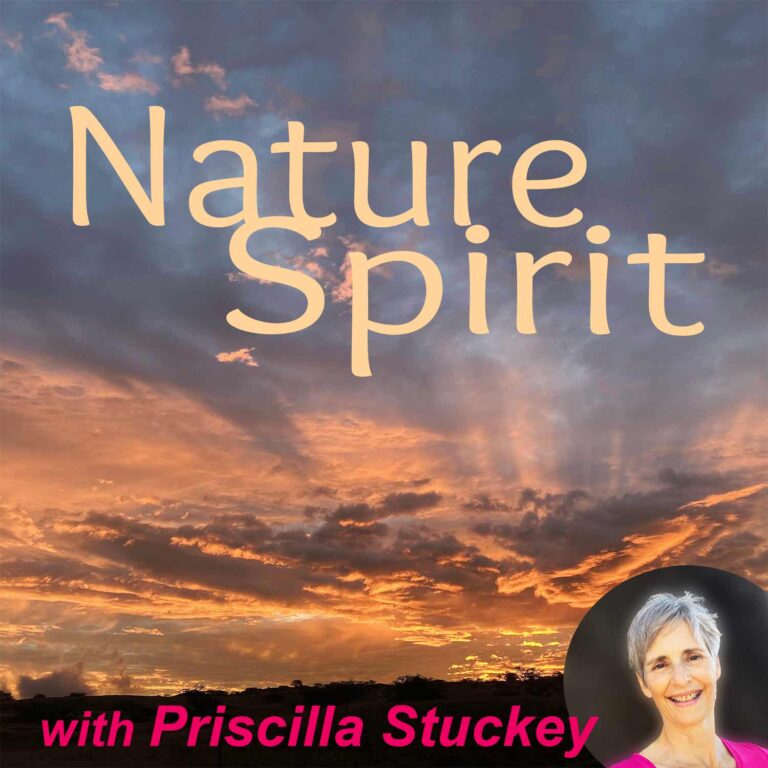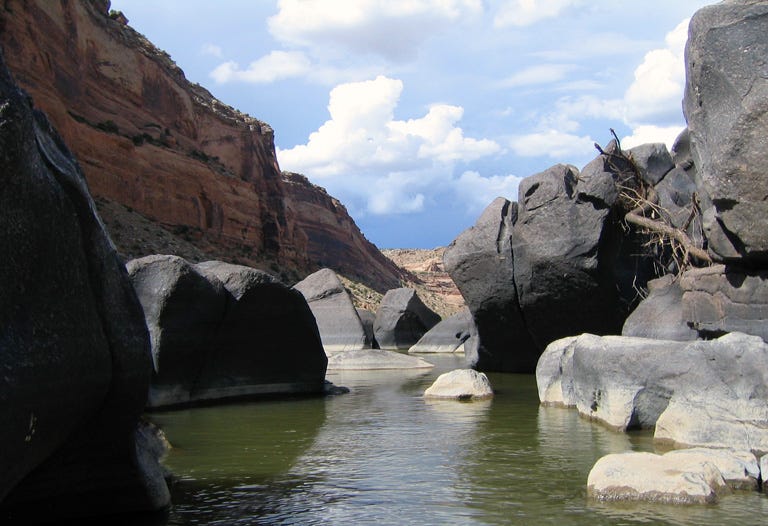Transcript
Many years ago a Turkish Sufi teacher named Baba gave me a word of advice. I was at a turning point in my life, facing a tough choice, one that was bound to feel bitter no matter what. Baba looked at me with shining eyes and said, “In life, there is always sweetness and bitterness. Every sweetness holds a bitterness, and every bitterness holds a sweetness. Find the sweetness in the bitterness.” He said it in a reassuring voice, as if that was all I needed to do.
I nodded yes, but I was hardly convinced. Finding sweetness did not come easy to me. It never has. In the changes that followed, though, I did try to take his advice. Tried not to kick at life so hard. Tried to imagine, when things took their bitter turns, that some good might come. It was a practice.
It’s a practice now too. We’ve seen a great deal of both bitterness and sweetness in just the past few days. Sweetness in the results of a runoff election in Georgia, where racist tactics backfired at last. And just hours later, bitterness in the white mob that stormed the Capitol. Those events are so fresh, as I record, that I haven’t had time to absorb them yet.
Finding sweetness has also been a practice throughout this past year, a year that was full of every kind of bitterness. Illness and dying to a degree that is simply unfathomable. Hardships of every kind. And even if we didn’t lose a loved one to dying, as so many people did, we might have lost faith in those who are still alive. There has been more than enough malice and cruelty on display to wear down even a strong faith.
So right now we might be feeling rather pummeled. Or maybe we’re just exhausted by now. Worn down by a year of pandemic. Our hearts reach out, wishing to help. But our hearts seem to reach way farther than our bodies can follow. Feeling helpless to make much of a difference is part of what gives the current time a bitter feel.
But it is right here, in our collective weariness, that I find a sign of sweetness. A year that exhausted us has brought out something precious too—a fervor for truth and justice that I have rarely seen in my life. Losses that break us down can do that—grind away all that’s not essential and reveal a foundation that’s truer and stronger than what we had before. Our patience with wrongdoing is being worn away, our “high tolerance for the unacceptable,” as a friend of mine puts it. People of good heart are weary of BS, and I find genuine hope in that. We are restless for better times.
I would call it a divine discontent. It’s a dissatisfaction that gives people fuel for bringing about change. Feeling restless can provide some power for making “good trouble,” as Congressman John Lewis always said. And if he were still with us, he would be celebrating, dancing at the “good trouble” of registering so many new voters, especially people of color, in his old stomping grounds of Georgia.
We saw this divine discontent in the Black Lives Matter movement over the past year—thousands of white people joining sisters and brothers of color in demanding more equality, more justice. Especially after this week, when the contrast is so stark between how police treat peaceful protesters of color and how they treat white violent mobs, I sense the cry for justice welling up again.
Though I didn’t march in the streets this past year, I set aside time to learn more about the prison abolition movement—how the prison system in this country perpetuated the rules of slavery, as Angela Davis outlined in her book Are Prisons Obsolete? And I’ve learned how so many people today are thinking about and planning for a world beyond prisons, beyond police violence and force. The community wisdom and will for change are astounding, and are growing. Out of the bitter events of losing so many Black lives, this piece of sweetness is growing.
The past year also brought more talk of climate change than we’ve heard and more public commitment to addressing it. Almost every week brings news of yet more billions of dollars being divested from Big Oil, thanks to activists working around the globe. The fossil fuel industry was already in trouble, but after a year of pandemic, it may never recover its previous power. And all I can say is, Praise be!
And of course all the organizing people have been doing for democracy. In this past year, thousands of people wrote postcards and letters to voters. They phone-banked. They registered new voters. In spite of voter suppression, in spite of the postal system getting sabotaged, in spite of a plague keeping people in their homes, the election in November saw record numbers of voters. The highest voter turnout since the year 1900. Weary people stayed determined, restless for change. This is indeed sweet.
And it will make a dramatic difference soon, as a new administration is sworn in, with the power to turn the laws of the country in new directions. The country has been suffering under leaders whose grasp on reality is twisted and whose intentions are full of malice. I learned this past year that mental health symptoms are contagious, something that psychiatrist Bandy X. Lee of Yale has been writing and speaking about. She’s one of the mental health experts educating people about how dangerous it is to public health to keep a profoundly damaged or pathological person in public office. The research shows, she says, that when the pathological leader is removed, the shared symptoms in their followers tend to subside. If any part of change in this way is coming, it will be sweet.
As we move forward out of such a fraught time, the biggest source of sweetness can be the healing power of nature. I notice that in this time of environmental crisis, people may find it easier to get in touch with their sadness or grief over the environment than to keep in contact with the sweetness that nature continues to provide. Especially at a time like now, it is crucial to find comfort in nature. Daily comfort. Because as our awareness of how we are damaging the Earth continues to grow, so does the temptation to give in to despair—to become convinced that our own story as human beings on this planet will end badly, and to feel that we are ruining the planet as a whole, or even life itself.
It is crucial not to give in to this delusion. We simply don’t know the end of the story yet, and it is premature to jump to conclusions. We do know the course we’re on, and we can see we need to change it—and fast!—but giving in to despair will not help us. Despair will rob us of the very energy we need to try new habits, to turn toward better relations and deeper connections with the other lives and creatures here on Earth.
When I am tempted to despair, I find it helpful to remember that Life will always find a way. The sun will set tonight, and it will rise again tomorrow, and the day after, and the day after that. The life of this Earth will continue no matter what directions humans go. The great creative life force will continue to seek new solutions, finding its way around obstacles like water flowing around rocks.

And every time life finds a new solution, we call it evolution—a bit of creative change tried out as an experiment by a microbe or a bird, a small adjustment that may help it survive. Those creative changes happened for billions of years before humans showed up, and they will continue to take place no matter what happens to us. Life regenerates; it keeps trying new things. And this power of Life to arrange planets in the sky and keep galaxies whirling and to inspire bugs to keep refining their wing shape remains untouched. Undiminished. As humans, we simply don’t have the power to interfere with it. We can and do influence how the life force works itself out, but we cannot touch the source of Life itself.
I find a great sweetness in that. A deep consolation.
So I recommend connecting with nature on a daily basis to keep in touch with how limited is our role is in a much larger story. To remember to be humble. To keep filling ourselves with renewal and refreshment. To keep enjoying the companionship of the animal and plant relatives nearby, and to make decisions that are kind to the future that we would like to share with all of them.
And for these times, I especially recommend visiting rocks. They are older than any other beings; they are solid and lasting. In times of loss and grief, I find it comforting to go sit on rock outcroppings and soak in a little of their permanence.
I recommend the magic of water too for a time like this. When the human world seems overwhelmed by ignorance or malice, I seek the help of water, not to be reminded of what is lasting, but for just the opposite reason—to remember that everything changes. This too will pass. Water will continue to wash and cleanse, and it can clean out the stuck places in my own psyche as well. I ask water for help every time I wash my hands or bathe my body, and its power remains magical. Water has been a sweet ally for everyone during a year of pandemic.
I’m also fortunate to live close to the ocean, where Water rolls in all its glory day in and day out. I taste sweetness regularly by swimming in those shifting currents, feeling them jostle my body a little differently every time—some days with a slow rocking, other days with the slapping of choppy waves. Watching a dappled fish shift from purple to orange to cream or watching the smooth brown skin of an octopus shiver suddenly into knobbly black-and-white spines reminds me every time how mysterious are the ways of our animal neighbors, how worthy of our respect and reverence.
And even for the Northern Hemisphere now experiencing winter, Earth has great healing power to share. Tree scientists recently discovered that trees start growing new wood before they send out new leaves in the spring. So a tree in winter is a good reminder to look below the surface of things, to touch the kind of life that grows on a time scale different from our own. And in the popping open of a leaf, which we can rarely catch in real time, trees show us in hindsight how much they accomplished while we were not looking.
There’s a song I learned to love long ago, by the singer-songwriter Gordon Bok. It seems written for this time, when we need to feel the comfort of a dependably spinning Earth. “The world is always turning toward the morning,” he wrote. “The seas are rollin’ easy / as they did so long ago.” I rediscovered the song as I was musing about the coming year, and I recommend it for a heaping dose of consolation in the middle of any winter of the heart.
So I’m wishing for you a chance to rest and heal from wounds of the past years. I’m wishing for you a chance to feel how firm is the foundation that holds us all, how oozing full of life is the ground beneath our feet. When you go through a bitterness, may you find envelopes of sweetness tucked inside it, and in the coming year may your joy grow until it blossoms full and free.
For digging deeper
For resources on prisons, police, and punishment, see this resource guide compiled by Micah Herskin on Medium. Micah quotes Ruha Benjamin: “Remember to imagine and craft the worlds you cannot live without, just as you dismantle the worlds you cannot live within.” Angela Davis wrote the textbook on slavery and prisons in Are Prisons Obsolete? Also check out the “Prison Abolition” page at The Marshall Project, curators of criminal justice journalism, for a list of the resources on the whys and hows of abolishing both prisons and the police system. Mariama Kaba’s new book, We Do This ’Til We Free Us, coming in February, is available now for preorder. I have learned much from Kaba’s Twitter feed, @prisonculture.
On fossil fuel divestment: New York City’s pension fund is one of the most recent to divest, announcing in December they will divest more than $200 billion in oil and gas stocks. Bill McKibben has been writing about how the fossil fuel industry is running out of money: “Thanks to Climate Divestment, Big Oil Finally Runs Out of Gas,” New York Review, May 12, 2020. See also his New Yorker newsletter, “Are We Past the Peak of Big Oil’s Power?” from May 28, 2020. For more on how new info about methane emissions is harming the industry’s economic viability, see Justin Mikulka, “The US Oil and Gas Industry’s Methane Problem Is Catching Up with It,” DeSmog Blog, Sept. 16, 2020. Much of the American coal industry is propped up by Asian financing, which is right now deteriorating.
Dr. Bandy X. Lee, a forensic psychiatrist, completed both an MD and a Master of Divinity at Yale to be able to address both the body and spirit of her patients. Yale News did a profile on her in May. Dr. Lee lays out the details of how mental health symptoms are contagious and how mental health pathology can spread from leader to followers: “Trump’s Psychosis Has Infected His Followers. Here’s How to Get Them Better,” Salon, July 22, 2020. She recommends three steps for renewing the mental health of American people: removing the offending agent (the toxic public leader); dismantling the propaganda bubble that kept him in power over his cult; and improving the socioeconomic conditions that led people in the first place to cling to delusions and show other evidence of “poor collective mental health.” See this interview also: “How Trump Ruined Americans’ Mental Health,” Chron, Dec. 7, 2020, by Alison Medley.
Update 1-11-21: A new interview with Bandy X. Lee was published in Scientific American today with more explanation on shared psychosis and how to help Trump supporters heal from their delusions.
A fascinating look at how tree trunks expand and contract over the course of a day appears in “A Day in the Life of a Tree,” by M. R. O’Connor, The New Yorker, Aug. 27, 2019.
For musical consolation in any winter of the heart, listen to Gordon Bok’s “Turning Toward the Morning,” sung by the trio of Gordon Bok, Ann Mayo Muir, and Ed Trickett.

















Thank you, Priscilla. Your words are both comforting and inspiring.
So glad you find them helpful, Barbara! Thanks for stopping by. May all be well.